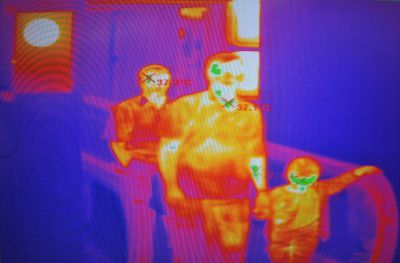Too early to declare swine flu peak over, WHO confirms

Your support helps us to tell the story
From reproductive rights to climate change to Big Tech, The Independent is on the ground when the story is developing. Whether it's investigating the financials of Elon Musk's pro-Trump PAC or producing our latest documentary, 'The A Word', which shines a light on the American women fighting for reproductive rights, we know how important it is to parse out the facts from the messaging.
At such a critical moment in US history, we need reporters on the ground. Your donation allows us to keep sending journalists to speak to both sides of the story.
The Independent is trusted by Americans across the entire political spectrum. And unlike many other quality news outlets, we choose not to lock Americans out of our reporting and analysis with paywalls. We believe quality journalism should be available to everyone, paid for by those who can afford it.
Your support makes all the difference.It is too early to declare that the peak of the global swine flu pandemic is over, the World Health Organisation said Wednesday, as infections are still rising in regions such as western Africa.
"The director-general decided that it was appropriate not to make any changes in the current pandemic phases right now," said Keiji Fukuda, special advisor to WHO chief Margaret Chan on pandemic influenza.
The decision comes a day after the WHO's emergency committee of experts recommended against the UN health agency declaring that the peak of the pandemic is over.
A post-peak phase would not mean that the pandemic is over, but that it is in a transition phase.
Had such a transition phase been declared, the WHO could revise the recommendations it has made to its 193 member states on what precautions - such as vaccination - they should take.
Explaining the decision of the 15-member emergency committee, Fukuda said that a decline in flu cases had not seen worldwide.
While countries such as the United States are reporting fewer infections, others such as Mauritania and Senegal are seeing an increase, he said.
"In terms of epidemiology, pandemic activity is in different places in different parts of the world," said Fukuda.
Experts were also concerned that winter - when flu cases typically increase - is nearing in the southern hemisphere.
In addition, the emergency committee took a cautious view that its advice "should not harm the efforts of countries in dealing with influenza activity," said Fukuda.
"On this basis, the emergency committee provided the view to the director-general that it was really too early to conclude that the pandemic is in the post-peak period in many countries," he said.
The emergency committee is expected to review the situation in the "next couple of weeks."
Nearly 16,000 people have died worldwide from the A(H1N1) strain after it spread into 212 countries and territories since it was uncovered in Mexico and the United States in April 2009, WHO data shows.
hmn/rom
Join our commenting forum
Join thought-provoking conversations, follow other Independent readers and see their replies
Comments